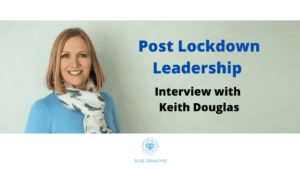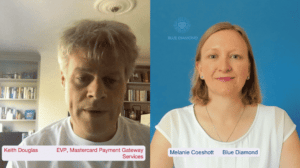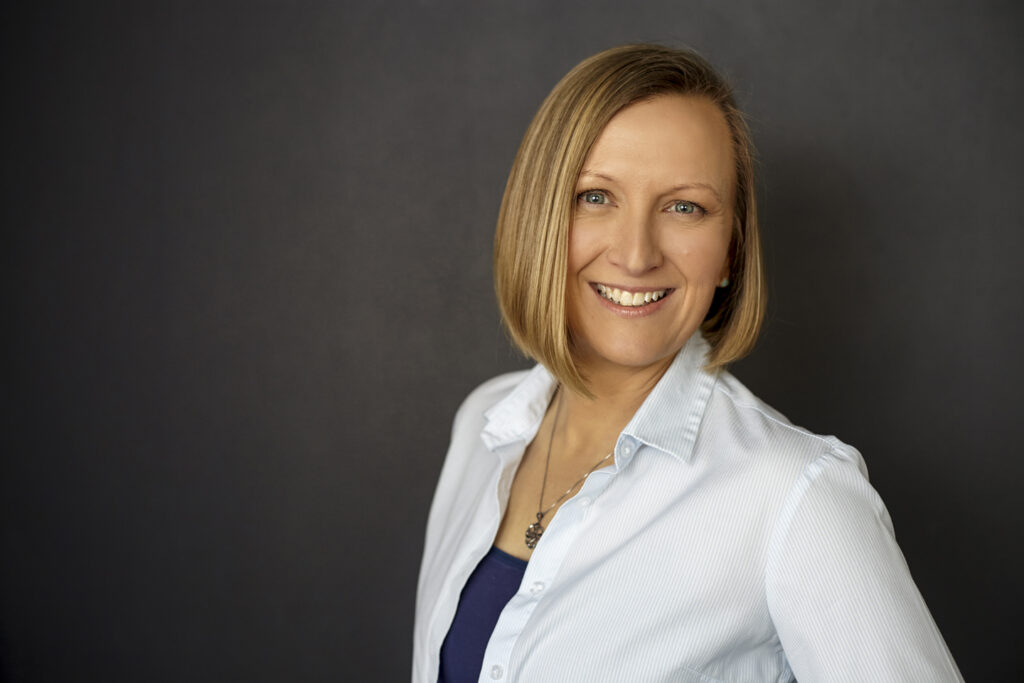 This interview with Keith Douglas forms part of the Blue Diamond Post Lockdown Leadership Review.
This interview with Keith Douglas forms part of the Blue Diamond Post Lockdown Leadership Review.
We discuss what great leadership looks like, and how to practice self-leadership and leadership traits for career success.
In addition, we look at anticipated changes in working practices and key skills for success in the post-lockdown economy.
Watch the interview with Keith Douglas here

Post Lockdown Leadership Review – Interview with Keith Douglas
Melanie Coeshott (MC) – Good morning Keith. Thank you very much for agreeing to talk to me this morning.
Today I welcome Keith Douglas, who is currently the President of Mastercard Payment Gateway Services (MPGS).
So, Keith, tell us a little bit about what you’ve done before this role.
Keith Douglas (KD) – Thank you very much for having me and inviting me to talk with you. I’ve been in my current role as President of Mastercard Payment Gateway Services for two years. Prior to that, I spent time working for MasterCard, both in Europe and North America, in what could be described as a kind of general management and account management role. And I’d done that for the best part of ten, or twelve years.
I’ve been very much client-facing, very much focused on the commercial aspects of our business. Working with our clients to bring them solutions to solve multiple pain points in the payments area.
With this role in Gateway (MPGS), I now look after our merchant clients, our acquiring clients on the acceptance side, helping them transact commerce online which, in this current environment, is an important thing, as you can well imagine.
MC – Absolutely.
So, you’ve obviously been in a number of different leadership roles and you’ve probably worked with some great leaders as well, during your career to date.
What does great leadership look like to you?
KD – That’s a great question. You’re absolutely right.
My leadership journey has been very much shaped and influenced by the people I’ve worked for, either directly as my leaders or unit heads, and indeed also by some of my peers, who I’ve learned from over the last twenty-odd years.
So, what does great leadership means to me? It means a number of things.
It means essentially that I have a duty and obligation to my team, to enable them to perform in a way that maximizes their skills, their potential, their excitement, and their energy.
It’s my job to facilitate an environment that enables those individuals to shine, and clearly then corralling that in a way that drives business unit objectives and deliverables.
So, first and foremost, as a leader, I’m there to help those in my team, and those that my team works with, to deliver in a way that is impactful, inspiring, and certainly meets the needs of the solution to the pain points or whatever it is, we’re focused on.
MC – Great answer.
What do you interpret by the term self-leadership and how do you personally practice this?
KD – Self-leadership means a couple of things to me.
Firstly, you’ve got to practice what you preach and you’ve got to understand what you bring as a leader to a team, or to an environment. You play a role, not just as the leader of that team, but you are a contributor, you are a motivator, and you are a participant in all manner of things.
And hence for me, self-leadership is about understanding and recognizing that and finding a way to ensure that you play that role, in addition to clearly leading the broader team that you have responsibility for.
So specifically, that means three things to me:
It’s about understanding what my edge is. And by edge, I mean, what is it that I bring to the table? What is that I’m particularly good at? What is it that I really enjoy? And being able to harness that in the context of the team.
That edge then helps me define my guiding principles as a leader, whether it’s through my lens or the lens of the wider team, self-leadership of the wider team.
I’ve kind of fine-tuned what those guiding principles are for me and what people can expect from me, what people can anticipate when they interact with me. Consequently, I hope that in doing so, they can bring the best out of me and help me demonstrate to them what I can do and help them drive forward their particular project or business objective.
I have six or seven of those guiding principles, that I think are very straightforward. They’re not rocket science and probably aren’t unfamiliar to your clients or viewers.
One of those is being present. When I’m in a meeting I am engaged, whether I’ve set the meeting up or as a participant, I am there to contribute in the best way that I can.
Another one is that everyone gets an A as we start a performance year, a project, or a discussion. I’m already assuming that the individuals that I’m working with, within my team, can do their job well. My role is not to get in the way of that, but actually to help ensure that they can get an A+ in terms of their performance.
Those guiding principles help me define my manifesto as a leader and I’m not getting all political here. But essentially what I what from the team and how I can contribute to that team, as well as help members of that team get better.
So, those three things: knowing my edge, knowing my guiding principles, and turning them into how I lead the team are really the core aspects of my self-leadership and how that plays out in the wider team.
MC – Great stuff.
What signs of leadership do you look for from staff within your business?
You already mentioned that you assume that they can do the job well. But what other skills or strengths do you look for, for promotion or advancement in your business?
KD – Another great question and certainly a very wide-ranging question.
There are things that I look for in individuals, not that necessarily mean that they get promoted or that they’re even better placed to be promoted. Your question highlights the key qualities that I look for in individuals. Frankly, I look for these because I’ve seen them in the past and I’ve seen how successful individuals with these traits can be, either within teams I’ve been a member of or teams that I’ve led.
- I’m looking for people who are decisive. And, by that, I don’t mean that they’re willing to make a decision, but they recognize when they need to make a decision or recommendation.
- I’m looking for people who are willing to share and share information, share knowledge, and share best practices. For me, sharing drives an individual’s ability to empower others. Empowerment is about ensuring others are equipped and learning and feel confident in doing their role.
- I’m looking for people to take risks, but to take sensible risks. That is not to be caught out on the pros and cons, but to try to make a decision based on the balance of information available to you. You won’t always get it right!
- I’m looking for people who are curious, who will go beyond the obvious question, go beyond their remit from time to time. To build out that better answer, that better solution, that more informed decision,
These are the kind of qualities I look for, and that I’ve seen over the twenty or so years I’ve been in the workforce, in people who’ve got on and advanced in their careers.
MC – Yes, some great competencies and skills there, I see that.
So, obviously, we’re going through a lot of change at the moment and many of us are working in ways that we probably never imagined even just a few short months ago. Yet we’re probably not through this period of change, quite yet.
What changes do you anticipate in our working practices over the next twelve months and beyond?
KD – A good question. I’ll be the first to say that in the ten weeks, or so I’ve been working from home, I’ve learned quite a bit about my team and quite a bit about myself. I’m sure that wouldn’t be a surprise to you or any of your clients because I think we’ve all had that experience in some way, shape, or form, be it through a work lens or through a personal lens. And we’re all conscious of finding that balance between work and our personal lives.
For the first time in a long time, I think it’s thirteen weeks now, and counting, I haven’t been on a plane. That’s been a nice experience in one sense, but what have I got out of it?
I’ve got a few things:
One is the importance of teams in breaking down silos, and this environment where we’ve had to work from home has really forced us, as a team to operate, not so much in different ways, but in a consistent way through phone. You don’t have body language when you’re on a call, whether it’s with a client, with a partner, or with a member of staff. But how we’re now also collaborating as a team using tools like Microsoft teams, using Skype, and using other platforms and other techniques to help each other drive our business has demonstrated a couple of things to me.
One is to never underestimate the power of the individual. When given direction and when trusted through empowerment, people will drive.
Secondly, you don’t have to manage in an overbearing way. This is around trust and trusting your team to do what it is and what they’re expected to do in the course of this work-from-home environment. That’s critically important because you’re not physically in front of them. You’re not physically checking in and checking in less frequently than you would do in an office. Giving that space, showing that trust. Even though the temptation is as a leader to lean in and help them, given the circumstances and the environment and maybe challenges they are having at home. Trust them. And if you trust them in an inappropriate way, they’ll trust you and then flag you when they need input and they need help.
These are the two big learning points for me.
A third one I want to mention is less of a learning point, but certainly, I now realize that being in the office is not the be-all and end-all. You can successfully drive a business this way. However, human interaction, and human contact – over and above video like we’re using today – is important and certainly, shouldn’t be ignored, notwithstanding how my team has successfully navigated the last twelve weeks!
MC – That’s great to hear.
As we’re going to be coming through this and out of the other side at some point.
How are you going to be managing yourself and lead others as well?
How I manage myself has already changed, certainly adapted to the environment we’re in. Going back to what I said earlier about continuing to push empowerment and giving that feeling of trust to the team.
But for me, given I previously spent a lot of my time on planes visiting team members and clients in different countries and visiting partners so that we can get things done. That was an important part of my role. But, not being able to travel, has made me sit back and think about how I use my time, and certainly in a world going forward where we’re not as restricted as we are now, how I best optimize my time.
I’ve had a lot of time to reflect, not only on my ability and style as a leader but actually to think more deeply and more strategically about this business than I have in the past, even when jumping from a plane into an office, so that’s one aspect. Getting that balance right between thinking and doing. I’ve certainly got more balance in my thinking now, quite a balance towards the thinking, and for me as a leader, that’s an important part of my role.
The other element I certainly appreciate in this environment is in respect of me as the leader of the team, but also personally, is making my weekends feel different than my week.
Obviously, I’m sitting in the same place, Monday through Sunday, albeit I spend a lot more time Monday to Friday in this home office and less on the weekend, but making sure I spend time with others. Making sure I talk, especially with my family here, but also make sure that I switch off, so, therefore, my team can also switch off.
Now, I don’t tell my team what to do, but I know my team responds to a lot of my emails. Over these last ten weeks, on a handful of occasions, I’ve sent an email that’s basically critical because our business is an operating platform, but you know, being more respectful of this.
So, there are two key ways: get the right balance between thinking and doing and make sure that I don’t drive behaviors of my team that are unhelpful or inconsiderate.
MC – Okay, so we’re talking balance on both sides.
KD – That’s right.
MC – So finally then,
What skills do you perceive to be of importance in the coming months and years ahead?
Whether it’s your own skills or skills that you think will be useful in your business or within your team members.
KD – I think collaboration is a hugely important skill, whether in a physical or non-physical environment. I think our ability to collaborate has been tested in this kind of working-from-home environment. Principally, in my organization, we’re using voice rather than necessarily video, like we are today. And where I have had the opportunity to use video, I certainly can see and understand the benefits of it to drive, motivate and inspire others to do things. So, for me, being present physically is important, but using channels like video does help.
The collaboration piece is important in so far as even when you know you don’t necessarily see the individual or the group that you’re talking to you know, we all know about body language, and we all know about voice. So the skills to unpick this, “does that person really mean what they’re saying?”. You’ve only got that bases of collaboration and or that discussion, so it’s certainly a talent. I certainly try to fine-tune my questions so that I can better understand how the individual’s feeling, and thinking and not just rely on what they are saying. So that’s one aspect.
The other aspect for me is tools like Microsoft Teams, which is what we happen to use at MasterCard, are really excellent. Shame on me for not really embracing that kind of technology that has existed for a long time. I’m finding it really helpful. I can quickly log in to the app or go onto the website and get the information I need, without bothering an individual with an email or calling them. So, I think getting comfortable with tools like that is hugely important in terms of how we work going forward, and certainly, these last ten weeks have given me not only exposure but a degree of comfort. Another great reassurance is that you can manage your business and your people in a variety of different ways.
MC – Great. Well, thank you so much for taking the time to speak to me this morning. I’ve really enjoyed having this conversation and hearing your insights.
Thank you, Keith.
KD – My pleasure. Thank you for having me.
Thanks to Keith Douglas, President of Mastercard Payment Gateway Services.
Accomplished Payments Executive with a successful history of working in the Financial Services and Payments industry.

Thanks for reading. Check out other Blue Diamond articles to help you take control of your work and life.
Check out the other interviews in the Post Lockdown Leadership Review series

